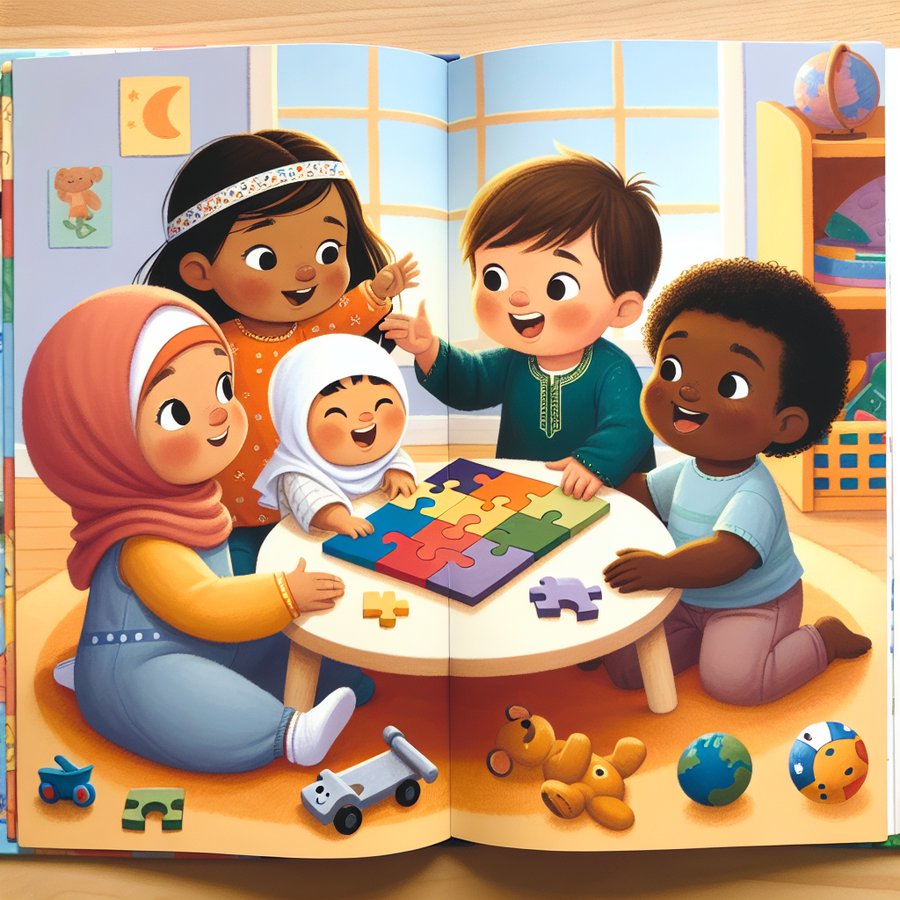Integrating activities to promote empathy and social understanding in toddlers is crucial for their emotional and social development. From an early age, children can learn to recognize and respond to the emotions of others, laying the foundation for lifelong interpersonal skills. This article delves into practical activities that parents and caregivers can use to nurture these vital qualities in toddlers.
Why Empathy and Social Understanding Matter
Empathy, the ability to understand and share the feelings of another, is a cornerstone of social interaction and emotional intelligence. For toddlers, developing empathy is not only about recognizing emotions but also about forming the building blocks for healthy relationships. Social understanding, on the other hand, involves recognizing social cues and responding appropriately, which is essential for communication and interaction.
Research suggests that fostering these skills from a young age can lead to better outcomes in social, academic, and personal domains later in life. Activities designed to promote empathy and social understanding can play a significant role in this developmental process.
Activities to Promote Empathy and Social Understanding in Toddlers
There are numerous activities to promote empathy and social understanding in toddlers. These activities are not only fun but are also crucial in helping toddlers navigate their social world with kindness and understanding.
One effective method is through teaching toddlers about emotions and appropriate expressions. By labeling and discussing emotions when they occur, children learn to identify their feelings and those of others. Reading stories and discussing the characters’ emotions can also deepen their understanding and empathy.
Role-playing and puppet play are other excellent ways to explore social scenarios and emotional responses. These activities allow toddlers to practice empathy by putting themselves in someone else’s shoes. Additionally, cooperative games that require taking turns and sharing can enhance social understanding by highlighting the importance of considering others’ feelings and perspectives.
Creating an Empathetic Environment at Home
Creating an environment that promotes empathy and social understanding at home begins with modeling empathetic behavior. Toddlers learn a great deal from observing how adults manage emotions and interact with others. Demonstrating acts of kindness, expressing emotions healthily, and showing understanding towards others encourages toddlers to emulate these behaviors.
Providing opportunities for toddlers to interact with a diverse range of people also fosters empathy and social understanding. These interactions can be facilitated through playdates, community events, or maximizing the developmental benefits of playdates. Ensuring toddlers have a safe and nurturing space to express themselves and discuss their feelings is also vital.
In conclusion, incorporating activities to promote empathy and social understanding in toddlers is essential for their emotional and social development. Through practical activities and creating an empathetic environment at home, parents and caregivers can nurture these crucial skills. By doing so, they pave the way for toddlers to grow into compassionate, understanding individuals.
For more insights and strategies on toddler development, visit Baby Whys and Hows.













